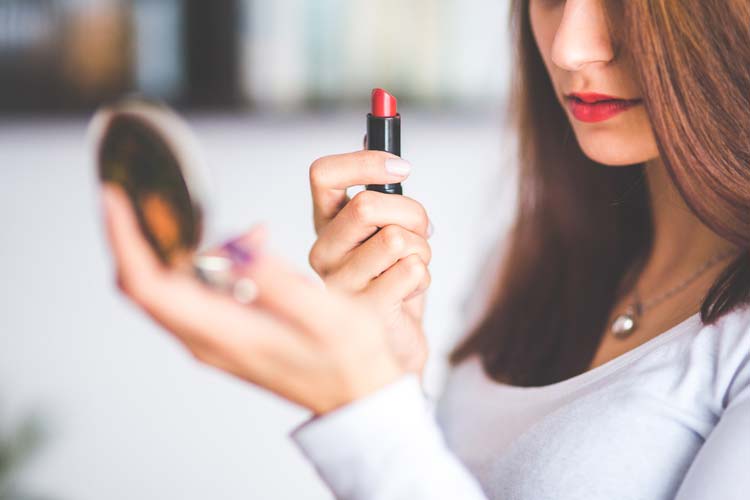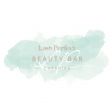
If you’re considering starting a new business, there are many exciting franchise opportunities in the beauty sector. Here, we take a look at what makes the beauty industry such an appealing prospect and why you should consider starting your own beauty store. Then, we go on to provide a guide to how you can achieve this.
>> Read more:
Why should I start a beauty store franchise?
1. Booming UK beauty industry
The UK beauty industry is thriving and is expected to continue growing for the foreseeable future. Between 2017 and 2022, the UK beauty market is forecast to grow an astounding 21.1 percent to reach a value of £26.7 billion. The average household will spend £487 per year, per head on beauty products and online sales will continue to grow.
Online vs shop front location
As an industry that has historically resisted the move to online retailing, the fact that big-name brands such as Amazon are investing in the online beauty sector represents a significant shift in consumer attitudes. However, eight in nine customers still purchase their beauty products in-store and the industry is likely to remain a predominantly “brick and mortar” industry for a considerable amount of time.
Evolving trends
The diversity of the products available in the beauty sector has also helped it remain strong. Trends are quick to come and go but there's always a reasonable amount of slack to allow for changes in focus and retailers usually have enough time to respond to changes in consumer demand. Currently, the skincare sector is the beauty industry's biggest grower, with skincare sales expected to grow by around 30 percent over the next five years.
2. Innovation in the industry
Constant innovation in the beauty industry is also a good reason to open a beauty franchise. In Europe alone, an estimated €2.35 billion is spent on cosmetics research every year. Though progress isn't always quick, there's a constant turnover of products from one year to the next and retailers can expect to stock incredibly different product ranges each season.
This type of research plays a particularly important part in the industry's renewed interest in natural ingredients. Scientists are testing and processing a wide range of natural substances as they attempt to identify substitutes for artificial components. The possible applications of nanotechnology in the beauty industry are also being explored and have resulted in breakthroughs in a number of different areas.
3. Growth of the health and wellbeing market
Though it’s difficult to conceive of now, there was a time when the beauty industry and the health and wellbeing sector were not related in any way. Today, the two are linked in a mutually beneficial relationship. This relationship manifests itself in two main ways.
Use of natural ingredients
First and foremost, there’s a growing concern around the use of artificial substances in beauty products. For the moment, cosmetics are going green. This means that beauty retailers have benefitted from customers replacing large swathes of their beauty supplies with organic or ‘green’ alternatives. In an industry that’s largely driven by trends, the alignment of the beauty sector with the health and wellbeing sector has allowed manufacturers and retailers to alter their focus and develop entirely new, incredibly popular product ranges.
The concept of ‘wellness’
The growth of the health and wellbeing market is typified by increased consumer interest in ‘wellness’. This abstract term is used to denote inner and outer health, beauty and happiness. It has become associated with a variety of activities and products, such as yoga, meditation and superfoods that are relatively new to the vast majority of modern UK society. In the beauty sector, this has resulted in increased sales for products like detoxifying cleansers, creams and masks. It’s also allowed the industry to rebrand many of its products to appeal to the new consumer mentality.
4.The rise of the influencers
In the past, celebrities were used to selling large quantities of cosmetics and beauty products and the glossy, celebrity gossip magazines were the place to advertise them. Now, it’s all about the influencers. In 2015, a study by Mintel found that just seven percent of women were interested in celebrity make-up advertisements. Rather than big names, customers wanted the face of cosmetics to be a strong role model and/or someone who was relevant to modern cultural movements.
Beauty retailers and manufacturers responded to this by beginning to employ social media stars as brand ambassadors. Today, this type of advertiser is known euphemistically as an "influencer". Their popularity, along with the widespread use of the social media platforms they exist on, have proven key to advertising cosmetics to a new generation. It has breathed new life into the industry and allowed it to overhaul its image radically.
5.The evergreen industry
While the beauty industry is driven by trends, it is essential to recognise that the industry itself is not a flash in the pan. The beauty sector could be considered a truly evergreen industry. Since the beginning of recorded history, humans have attempted to adapt their appearance by using naturally occurring substances and artificial creations. It seems as though humans have always had an urge to alter their appearance to fit the prevailing norms of beauty. Though the modern economic system has exploited this urge to build a multi-billion-pound industry, there has always been a beauty ‘sector’ of some sort.
What does this mean for entrepreneurs?
For entrepreneurs who want to open a beauty franchise, this is excellent news. Whereas many businesses have to worry that consumer interest will evolve and that their time in the spotlight will soon be over, there's no such concern in the beauty industry. It's almost inconceivable that people will stop wanting to make themselves feel better or will no longer strive to meet the contemporary definition of beauty. The beauty industry will always have a market to sell to, and beauty retailers will always have a high chance of success.
There are many reasons why the beauty industry is an intelligent place to invest your hard-earned money. In this article, for reasons of brevity, we've only explored five, but there are even more benefits not yet discussed. If you're considering opening a beauty franchise, you'll be pleased to know that the industry's ability to continually reinvent itself, find new ways to market itself and maintain demand for its products makes a new beauty business very much financially viable.
Guide to starting a beauty store business
By now, you should have a better understanding of the beauty store industry and whether or not it’s the right sector for you to start a business in. If you’re convinced it’s the one for you, then read on to see our guide to starting a beauty store business.
- Find a niche. If your business has a niche, you will stand out from your competitors and give potential customers a reason to try out your store. Conducting thorough research into the current state of the market is extremely important. Try to find out what is currently being offered and what isn’t, what is in high demand and what isn’t etc. There isn’t much point opening a store that only sells make-up if there are already plenty of these on the same street, and what the area really needs is somewhere that offers skincare, hair products and beauty accessories.
- Target customer. Think about the type of products you want to offer and who your target customer is. For instance, if you’re passionate about anti-ageing products and want to focus the majority of your range on this, then you might want to set up shop in an area with a higher middle-age population.
It’s also important to consider the types of shops you will be surrounded with and the customers they will attract. If your beauty store is next door to another shop aimed at a similar type of customer, you can benefit from spontaneous purchases. This will be particularly successful if you have an attractive window display and advertise any special promotions clearly.
- Develop a business plan. Write a detailed, well organised business plan that you can use to get funding and refer back to and adapt throughout your career. You’ll want to include financial projections, how you will get funding, your product range, overhead costs, marketing strategies, who your manufacturers and suppliers will be etc.
- Buy your stock. Buying in bulk or from a wholesaler is a good idea to save money. You can search online for wholesalers or attend a trade show. If you’re in two minds about a wholesaler, make sure you request samples and read reviews. It’s important to have a high-quality product range you are proud to sell and would happily use on yourself. If you wouldn’t, you’re hardly in a position to sell them to customers. Try out all of the products on yourself too, then you are able to share tips and tricks to customers and advise which is best for them. It’s this sort of exceptional customer service that will also make you stand out from the competition and help you establish a loyal pool of customers.
Becky Martin, Point Franchise ©
>> Read more articles on the Beauty Salon sector






0 Comments